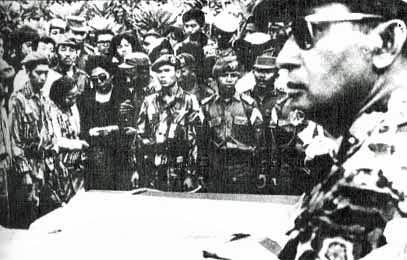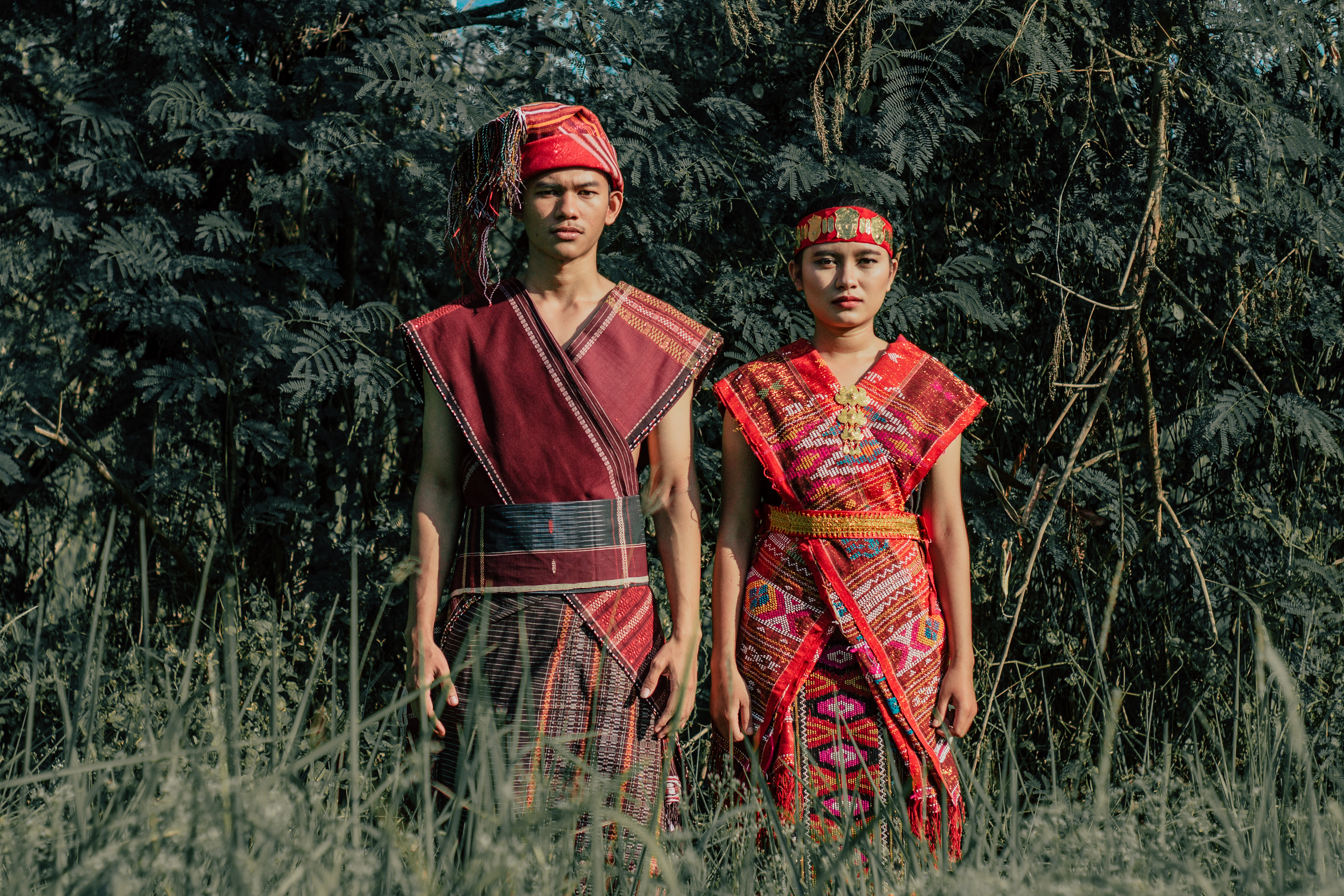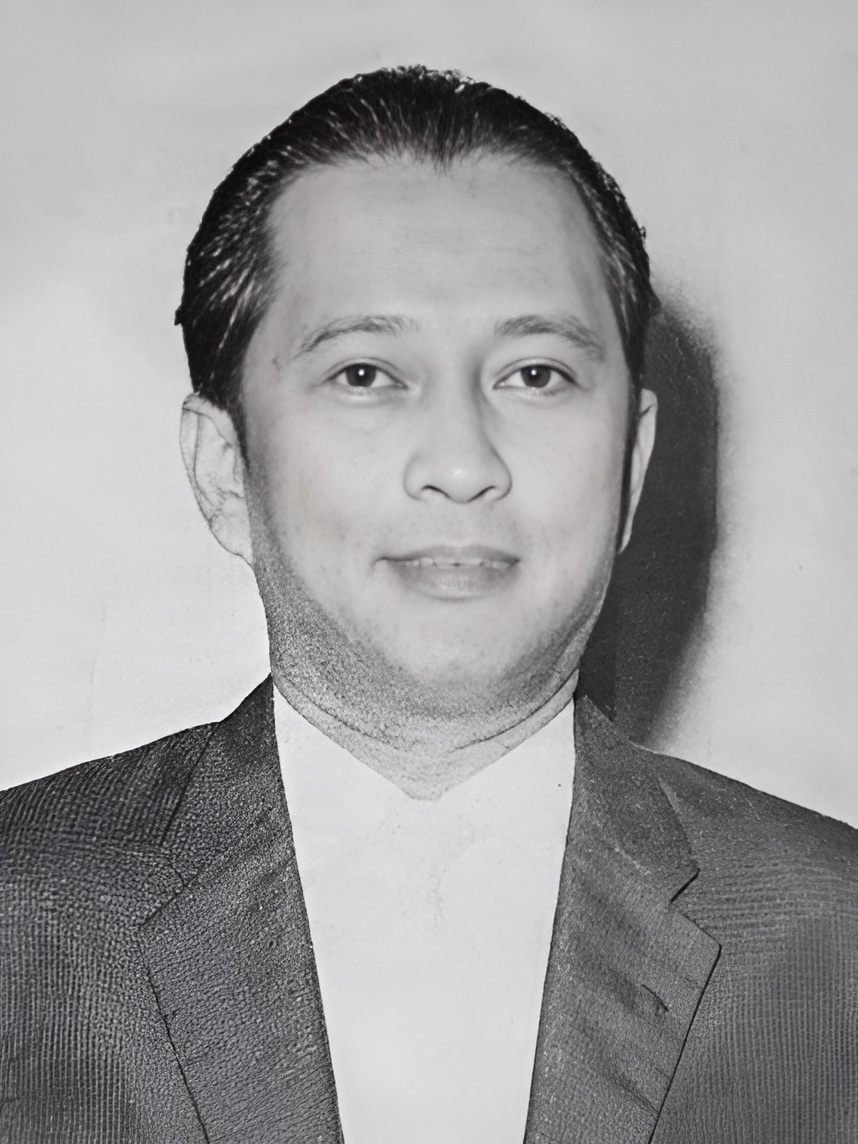|
Nasution
General of the Army Abdul Haris Nasution ( Old Spelling: Abdoel Haris Nasution; 3 December 1918 – 6 September 2000), was a high-ranking Indonesian general and politician. He served in the military during the Indonesian National Revolution and he remained in the military during subsequent turmoil of the Parliamentary democracy and Guided Democracy. Following the fall of President Sukarno from power, he became the Speaker of the People's Consultative Assembly under president Suharto. Born into a Batak Muslim family, in the village of Hutapungkut, Dutch East Indies, he studied teaching and enrolled at a military academy in Bandung. He became a member of the Royal Netherlands East Indies Army, but following the Japanese invasion, he joined the Defenders of the Homeland. Following the proclamation of independence, he enlisted in the fledgling Indonesian armed forces, and fought during the Indonesian National Revolution. In 1946, he was appointed commander of the Siliwangi Divisi ... [...More Info...] [...Related Items...] OR: [Wikipedia] [Google] [Baidu] |
Sukarno
Sukarno). (; born Koesno Sosrodihardjo, ; 6 June 1901 – 21 June 1970) was an Indonesian statesman, orator, revolutionary, and nationalist who was the first president of Indonesia, serving from 1945 to 1967. Sukarno was the leader of the Indonesian struggle for independence from the Dutch colonialists. He was a prominent leader of Indonesia's nationalist movement during the colonial period and spent over a decade under Dutch detention until released by the invading Japanese forces in World War II. Sukarno and his fellow nationalists collaborated to garner support for the Japanese war effort from the population, in exchange for Japanese aid in spreading nationalist ideas. Upon Japanese surrender, Sukarno and Mohammad Hatta declared Indonesian independence on 17 August 1945, and Sukarno was appointed president. He led the Indonesian resistance to Dutch re-colonisation efforts via diplomatic and military means until the Dutch recognition of Indonesian independence ... [...More Info...] [...Related Items...] OR: [Wikipedia] [Google] [Baidu] |
Transition To The New Order
Indonesia's transition to the New Order in the mid-1960s ousted the country's first president, Sukarno, after 22 years in the position. One of the most tumultuous periods in the country's modern history, it was the commencement of Suharto's 31-year presidency. Described as the great ''dhalang'' ("puppet master"), Sukarno drew power from balancing the opposing and increasingly antagonistic forces of the army and Indonesian Communist Party (PKI). By 1965, the PKI extensively penetrated all levels of government and gained influence at the expense of the army. On 30 September 1965, six of the military's most senior officers were killed in action (generally labelled an "attempted coup") by the so-called 30 September Movement, a group from within the armed forces. Within a few hours, Major General Suharto mobilised forces under his command and took control of Jakarta. Anti-communists, initially following the army's lead, went on a violent purge of communists throughout the coun ... [...More Info...] [...Related Items...] OR: [Wikipedia] [Google] [Baidu] |
Guided Democracy In Indonesia
Guided Democracy () was the political system in place in Indonesia from 1959 until the New Order began in 1966. It was the brainchild of President Sukarno, and was an attempt to bring about political stability. Sukarno believed that the parliamentarian system implemented during the liberal democracy period in Indonesia was ineffective due to its divisive political situation at that time. Instead, he sought a system based on the traditional village system of discussion and consensus, which occurred under the guidance of village elders. With the declaration of martial law and the introduction of this system, Indonesia returned to the presidential system and Sukarno became the head of government again. Sukarno proposed a threefold blend of (nationalism), (religion), and (communism) into a co-operative Nas-A-Kom or Nasakom governmental concept. This was intended to satisfy the four main factions in Indonesian politics—the army, the secular nationalists, Islamic groups, and ... [...More Info...] [...Related Items...] OR: [Wikipedia] [Google] [Baidu] |
Suharto
Suharto (; ; 8 June 1921 – 27 January 2008) was an Indonesian army officer and politician, who served as the second and the longest serving president of Indonesia. Widely regarded as a military dictator by international observers, Suharto led Indonesia through a dictatorship for 31 years, from the fall of Sukarno in 1967 until his own resignation in 1998. The legacy of his 31-year rule, and his US$38 billion net worth, is still debated at home and abroad. Suharto was born in the small village of Kemusuk, in the Godean area near the city of Yogyakarta, during the Dutch colonial era. He grew up in humble circumstances. His Javanese Muslim parents divorced not long after his birth, and he lived with foster parents for much of his childhood. During the Japanese occupation era, Suharto served in the Japanese-organized Indonesian security forces. During Indonesia's independence struggle, he joined the newly formed Indonesian Army. There, Suharto rose to the rank of major g ... [...More Info...] [...Related Items...] OR: [Wikipedia] [Google] [Baidu] |
Batak
Batak is a collective term used to identify a number of closely related Austronesian ethnic groups predominantly found in North Sumatra, Indonesia, who speak Batak languages. The term is used to include the Karo, Pakpak, Simalungun, Toba, Angkola, and Mandailing which are related groups with distinct languages and traditional customs ('' adat''). Prehistory Linguistic and archaeological evidence indicates that Austronesian speakers first reached Sumatra from Taiwan and the Philippines through Borneo or Java about 2,500 years ago, and the Batak probably descended from these settlers. While the archaeology of southern Sumatra testifies to the existence of neolithic settlers, it seems that the northern part of Sumatra was settled by agriculturalists at a considerably later stage. Although the Batak are often considered to be isolated peoples thanks to their location inland, away from the influence of seafaring European colonials, there is evidence that they have been i ... [...More Info...] [...Related Items...] OR: [Wikipedia] [Google] [Baidu] |
List Of Speakers Of The People's Consultative Assembly
__NOTOC__ This is a list of speakers of the People's Consultative Assembly, the bicameral legislature of Indonesia. The list does not include chairs of the Central Indonesian National Committee. From 1960 to 1971 the assembly was named the Provisional People's Consultative Assembly. Key: * * * * * * * See also * People's Consultative Assembly * List of Deputy Speakers of the People's Consultative Assembly * List of Speakers of the People's Representative Council * List of Speakers of the Regional Representative Council This is a list of speakers of the Regional Representative Council, the upper house of Indonesia. This list includes preceding body, the speaker of the Senate of the United States of Indonesia. Speaker of the Senate of the United States of Indone ... Notes Bibliography * * * * * * * * * References {{reflist, 3 Lists of legislative speakers Lists of political office-holders in Indonesia ... [...More Info...] [...Related Items...] OR: [Wikipedia] [Google] [Baidu] |
Osa Maliki
Osa Maliki Wangsadinata (30 December 1907 – 15 September 1969) was an Indonesian politician and teacher. He served as chairman of the Indonesian National Party (PNI) and a deputy speaker of the People's Consultative Assembly (MPR) from 1966 until 1969. Born in Padalarang, Osa was educated at a ''Taman Siswa'' school. He participated in an unsuccessful communist rebellion against the colonial government in 1926, being exiled to the Boven-Digoel concentration camp as a result. After returning from exile in 1938, he worked as a teacher. During the Japanese occupation, Osa worked in the propaganda section of a '' Hōkōkai'' and became a member of the '' Suishintai'', however, he was briefly detained by the ''Kenpeitai'' over his connections to an underground resistance movement. Following the proclamation of Indonesian Independence in 1945, Osa served in various positions in the newly-formed Republican government. During the Indonesian National Revolution, he co-f ... [...More Info...] [...Related Items...] OR: [Wikipedia] [Google] [Baidu] |
Indonesian Army
The Indonesian Army ( id, Tentara Nasional Indonesia Angkatan Darat (TNI-AD), ) is the land branch of the Indonesian National Armed Forces. It has an estimated strength of 300,000 active personnel. The history of the Indonesian Army has its roots in 1945 when the (TKR) "Civil Security Forces" first emerged as a paramilitary and police corps.Daves, Joseph H (2013) ''The Indonesian Army from Revolusi to Reformasi'' , p 15 Since the nation's independence movement, the Indonesian Army has been involved in multifaceted operations ranging from the incorporation of Western New Guinea, the Indonesia-Malaysia Confrontation, to the annexation of East Timor, as well as internal counter-insurgency operations in Aceh, Maluku, and Papua. The army's operations have not been without controversy; it has been periodically associated with human rights violations, particularly in West Papua, East Timor and Aceh.Schwarz, Adam (1994) ''A Nation in Waiting: Indonesia in the 1990s'' Allen & ... [...More Info...] [...Related Items...] OR: [Wikipedia] [Google] [Baidu] |
Liberal Democracy Period In Indonesia
The Liberal Democracy period in Indonesia (Indonesian: ''Demokrasi Liberal''), also known as the Era of Parliamentary Democracy, was a period in Indonesian political history, when Indonesia was under a liberal democracy system which began on 17 August 1950 following the dissolution of the federal United States of Indonesia less than a year after its formation, and ended with the imposition of martial law and President Sukarno's decree, resulting in the introduction of the Guided Democracy period on 5 July 1959. On August 17, 1950, the Republic of the United States of Indonesia (RIS), which was a form of state as a result of the Round Table Conference agreement and the recognition of sovereignty with the Netherlands, was officially dissolved. The government system was also changed to a Parliamentary Democracy and based on the Provisional Constitution of 1950. The period of liberal democracy was marked by the growth of political parties and the enactment of a parliamentary sy ... [...More Info...] [...Related Items...] OR: [Wikipedia] [Google] [Baidu] |
Siliwangi Division
Military Regional Command III/Siliwangi ( id, Komando Daerah Militer III/Siliwangi or Kodam III/Siliwangi) is an Indonesian Army Regional Military Command that covers Banten and West Java province. The division was formed during the Indonesian National Revolution by what was then known as the People's Security Army (TKR). It was stationed in West Java where much of its membership was recruited, and bore the name of a 15th-century kingdom located in this area and of that kingdom's King Siliwangi. it became a Territorial Division (Soldier & Territorium) on 24 July 1950, and a military regional command, or KODAM, in 1959. From May 1946 the division was commanded by then-colonel Abdul Haris Nasution and his adjutant was Umar Wirahadikusumah, and slightly later Amirmachmud was the Division Commander's Chief of Staff. Kemal Idris was also among the division's officers. All of these would play a significant role in Indonesia's military and political life during the coming decades. U ... [...More Info...] [...Related Items...] OR: [Wikipedia] [Google] [Baidu] |
Dutch East Indies
The Dutch East Indies, also known as the Netherlands East Indies ( nl, Nederlands(ch)-Indië; ), was a Dutch colony consisting of what is now Indonesia. It was formed from the nationalised trading posts of the Dutch East India Company, which came under the administration of the Dutch government in 1800. During the 19th century, the Dutch possessions and hegemony expanded, reaching the greatest territorial extent in the early 20th century. The Dutch East Indies was one of the most valuable colonies under European rule, and contributed to Dutch global prominence in spice and cash crop trade in the 19th to early 20th centuries. The colonial social order was based on rigid racial and social structures with a Dutch elite living separate from but linked to their native subjects. The term ''Indonesia'' came into use for the geographical location after 1880. In the early 20th century, local intellectuals began developing the concept of Indonesia as a nation state, and set the stage ... [...More Info...] [...Related Items...] OR: [Wikipedia] [Google] [Baidu] |
General Of The Army (Indonesia)
General of the army ( id, Jenderal Besar, , Grand general), was the highest rank of the Indonesian Army. Within the Indonesian Armed Forces ranking system, it was the equivalent of admiral of the fleet () and marshal of the air force (). Those ranks were honorary and did not provide additional authority or responsibility. The rank has been only awarded to three persons, all in 1997 on the 50th anniversary of the Indonesian National Armed Forces. * Sudirman, also styled Grand Commander (), the commander of the armed forces during the war of independence and a national hero. The rank was granted posthumously. * Abdul Haris Nasution, a national hero, twice appointed chief of staff of the army, and a survivor of an assassination attempt in the 1965 coup attempt. * Suharto, the second President of Indonesia. The rank was bestowed during his presidency. As Government Regulation No. 32/1997 has been revoked and replaced by Government Regulation No. 39/2010, whereas the five-star ... [...More Info...] [...Related Items...] OR: [Wikipedia] [Google] [Baidu] |




